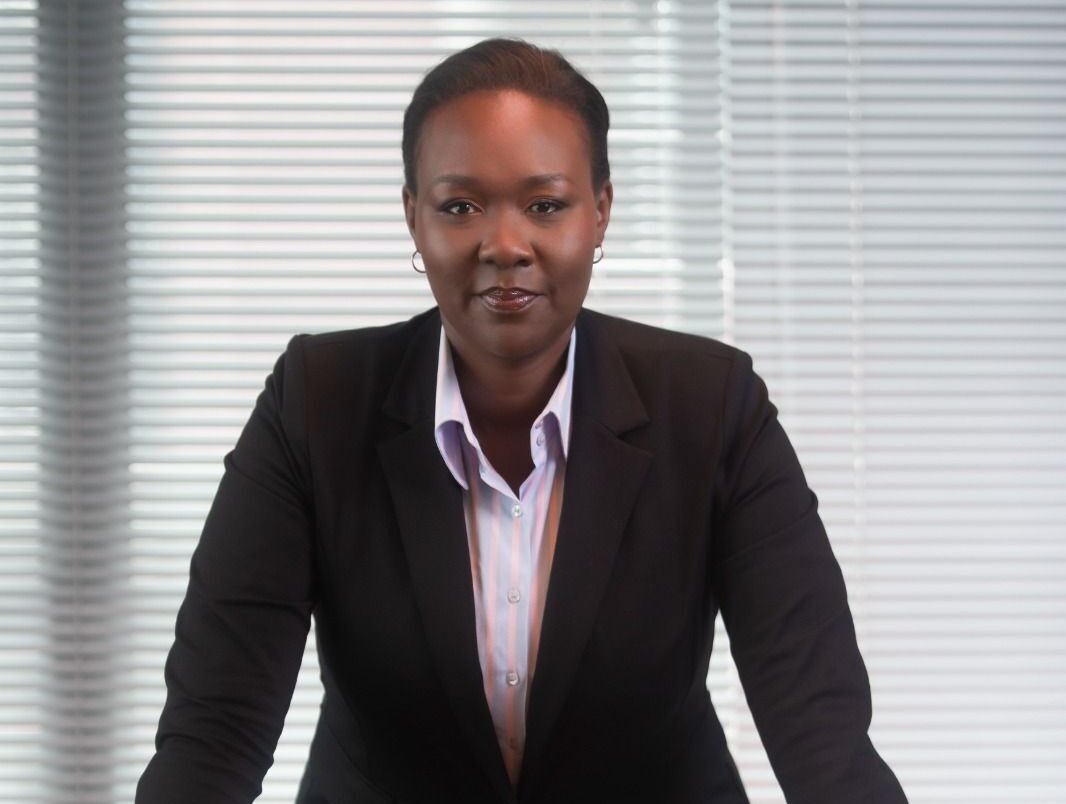Agriculture is a primary economic activity across many parts of Africa, but Cherotich Rutto, CEO and founder of a new agribusiness marketplace called Tawi Fresh, says the region’s smallholder farmers are “underserved” and “undervalued.”
“The only way to bring the smallholder farmers into the forefront is to use technology,” she notes.
Smallholder farmers in Kenya often lack access to markets, financing, proper storage facilities and fair pricing. Rutto, a farmer herself, realized how common these problems were amongst most smallholders in the region and set out to offer a technology-based solution.
Tawi Fresh launched this year and is currently incubating in the SC Ventures, a business unit that provides a platform and catalyst for Standard Chartered to promote innovation, invest in disruptive financial technology, and explore alternative business models.
Rutto recently spoke to AFN about her journey from farmer to founder and how her company is helping smallholders, particularly women and youths.

AFN: What initially motivated you to start Tawi Fresh?
CR: I’ve been farming for the last eight years. I started off with fresh produce, supplying the local markets. Two or three years ago, I ventured out into export markets — the UK, the Netherlands, Saudi Arabia and the Middle East. However, that aside, I would still consider myself to be a smallholder farmer.
When I started, I faced four main challenges. One: access to viable markets. I produced and produced and produced, thinking that “there’s already a viable market for me,” but that wasn’t the case. So unfortunately, my post-harvest losses were up to 70% sometimes.
Even if I got a market, the brokers and middlemen controlled it and were able to dictate pricing to me, often leaving me with little choice and not paying a fair price for what I had produced.
Then the third challenge was access to financing. Even as I was working in the bank, I thought, with my farming life, I could walk into any financial institution and be able to get access to finance to be able to scale. But again, this just didn’t happen.
Lastly was lack of knowledge in terms of what to grow, how to grow it, when to grow it, what type of soil could accommodate what type of products or produce. So, I had to do a lot of research and didn’t have access to information or mentors that could guide me through that journey and how to optimize my processes and maximize my yields.
I started looking around and I saw that everybody else around me, because it was a farmer community, was facing the same challenge. And when I got an opportunity to move into SC Ventures, I asked myself, “How do we use technology to support smallholder farmers who currently produce over 70% of what is eaten in this country and across the region, to access a viable market and financial services?”
Agriculture is a main economic activity across Africa. It contributes about over 25% of GDP in most of the African markets, and therefore it is a sector that is underserved, undervalued and farmers are underpaid and not visible, even in the financial ecosystem. The only way to bring the smallholder farmers into the forefront is to use technology.
AFN: How does Tawi accomplish that?
CR: At Tawi we said, “How do we support this sector by developing a digital marketplace for secure e-commerce transactions, financing, and value-added services all the way from farm to fork?”
Our company is underpinned by three key pillars. One is e-commerce to address the access to market challenge. Remember that is one of the biggest.
To reduce post-harvest losses, we use our e-commerce platform to connect farmers to a market. Right now, we focus on commercial kitchens: hotel restaurants, caterers, schools, hospitals. Exports, processing and retail are other segments.
At Tawi, we’ve deliberately chosen to focus on commercial kitchens because commercial kitchens are MSMEs [micro- small and medium-sized enterprises] and their orders are predictable and consistent. By aggregating consistent and predictable demand, we are able to then support the farmer to sell more to these commercial kitchens, therefore improving their lives economically and improving their economic status.
On the kitchen side, we are creating a lot of efficiencies within these businesses to [achieve] price transparency and delivery because we are doing the logistics both, first and last mile. And therefore we are seeing more and more businesses operating efficiently.
We currently have over 1,000 farmers on-boarded on the platform serving over 300 commercial kitchens.
Next is the financial services pillar. Once we start organizing the farmers on the platform and getting this data over time, we’ll build these scoring algorithms that we’ll be able to expose to financial institutions who can then start offering financial services: input loans, as school fees, loans, etc.
Lastly, we’ll have the value-added service pillar, which will predominantly focus on what we call “backward integrating.” We go back and start training these farmers on capacity building, on how to grow for quality, improve yields, and expand or scale on their farms. We are incorporating things like smart agriculture, precision agriculture. We give a lot of agronomic support working with input partners who are starting to offer quality seeds and fertilizers to this to the to the farmers on our platform.
AFN: What are a couple challenges you’ve faced along the way?
CR: The advantage that I had, together with my team, is the support we got from SC ventures. They already have key processes and very clear stages on how to execute and launch a venture.
But the lessons that I’ve learned throughout the build journey: One, you have to engage and involve users as you build, and for us that is an advantage that we’ve been able to realize now. During the build process, we were able to sit down with farmers. They were part of the build process. The commercial kitchens are part of the build process. So we sit with them we ask, “Does this functionality work for you? Do you need this statement here or not here?”
That really helped us in terms of executing an AI user interface that is very friendly, both to the farmer and to the commercial kitchen.
What we see now now is the ease of onboarding and the stickiness on the platform because it’s very easy to use. So I think the lesson is build with the user in mind and bring the user in early.
Number two is hiring the right team. Because we are a startup, we’ve had stages in which we’ve had to bring in certain expertise to ensure business is running efficiently.
For example, I have a banking background professionally and of course farming. However, we have quality processes that have to be adhere to because we are handling food. Therefore how do you start bringing in the right experts to start delivering on the quality that is required to the commercial kitchens?
The last lesson is about business model. Is it scalable? Putting on a global hat, can this be replicated tomorrow in Uganda? Can I take this to Vietnam? Can I take this to Indonesia, India, or Ghana?
AFN: Do you have plans to eventually move into some of those markets?
CR: Yes. Our roadmap is two-fold. We want to get into the export market. Once we start organizing our farmers, we start exposing them to an export market where there’s also a huge opportunity to be able to sell outside Kenya.
We also want to replicate this model in most of the African countries where the agriculture is key. I’ll give you an example: Ghana has over 4 million cocoa farmers, and today they export cocoa into Switzerland worth over $80 Million, where they produce the best chocolate in the world. But did you know that farmer in Ghana earns just 6% of the final value of a bar of chocolate?
We’ve also been asked to do some feasibility studies in India and Indonesia, because those are markets that Standard Chartered is also present.
AFN: What do you love most about your business?
CR: At Tawi, in terms of our sustainability and inclusion pillar, we’re very deliberate about working with women farmers and the youth. We work with female owned and operated commercial kitchens, and female farmers, because ultimately women take home 80% of what they make versus man who only takes home 40% of the income they make through farming.
If you empower a woman, you empower community. Today as we speak, 65% of the farmers on our platform are women. 29% of those farmers are youth below the age of 35. We’re seeing now because of technology, the transparency farmers can see this demand for what they can produce and more of them are getting into farming. So I think for me, that’s another pillar that is so important for us to continue empowering our own women across Africa.





